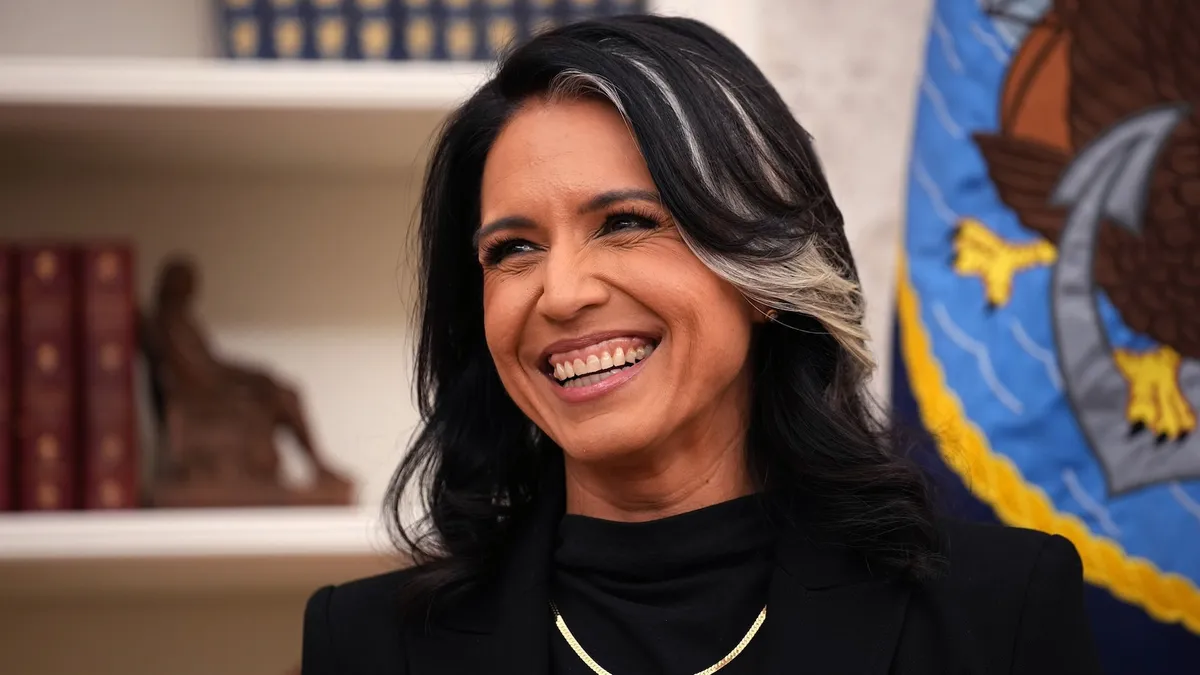
On her inaugural full day as the Director of National Intelligence, Tulsi Gabbard is set to travel to Germany for the prestigious Munich Security Conference. During this significant event, Gabbard will engage in 30 bilateral meetings with her international counterparts, including key U.S. allies such as Great Britain, France, Australia, and Germany, as reported by Alexa Henning, Deputy DNI for Strategy and Communications to ABC News.
Sworn into office on Wednesday afternoon following Senate confirmation, Gabbard is anticipated to deliver a speech at a luncheon during the conference. Accompanying her will be Vice President JD Vance and Secretary of State Marco Rubio, who are also attending the event.
During her January confirmation hearing, Gabbard outlined her priorities for the Office of the Director of National Intelligence (ODNI). Her focus is on ending the cycle of intelligence failures, diminishing the weaponization and politicization within the intelligence community, and restoring trust in the critical task of national security under President Donald Trump's administration.
Gabbard plans to assess the global threat environment by identifying intelligence gaps, integrating intelligence elements, enhancing information-sharing, and ensuring unbiased and apolitical analysis. This approach aims to support the President and policymakers in their decision-making processes, according to priorities obtained by ABC News.
A primary goal for Gabbard is to end the polarization within the intelligence community. Her objectives include ensuring a clear mission focus on unbiased intelligence collection and analysis. Rebuilding trust through transparency and accountability is considered a national security imperative, as emphasized in her strategic documents.
Like many government agencies under the second Trump administration, Gabbard's focus is on reforming the ODNI, which was initially created in response to intelligence failures leading up to 9/11. Her reform strategy aims to assess and address efficiency, redundancy, and effectiveness across the ODNI to sharpen its focus on national security missions.
Throughout the confirmation process, Gabbard met with more than half of the Senate over two months. This period saw lawmakers expressing frustration with recent intelligence failures. Gabbard continued her discussions with senators on Capitol Hill until the eve of her nomination.
Gabbard faced scrutiny from lawmakers on both sides regarding her stance on Section 702 of the FISA and her refusal to label former NSA leaker Edward Snowden as a traitor. The Senate confirmed her nomination with a 52-48 vote, with no Democratic votes and only one Republican dissent from Mitch McConnell.
Notable opposition also came from independent Senator Bernie Sanders, whom Gabbard supported during his 2016 presidential campaign after stepping down as Vice Chair of the Democratic National Committee.
According to documents obtained by ABC News, Gabbard intends to collaborate with lawmakers to ensure responsiveness to their intelligence requests. Key issues of concern include the October 7, 2023, Hamas terrorist attack in Israel, the 2024 Syrian rebel takeover, the COVID-19 outbreak's origins, Anomalous Health Incidents (AHIs) like the Havana Syndrome, Unidentified Anomalous Phenomena (UAP), and drone technology.
Tulsi Gabbard, a Lieutenant Colonel in the Army Reserve, brings 22 years of service in the Army National Guard and Reserve, with deployments to Iraq, Kuwait, and Djibouti. As the first female DNI with a military background, she plans to continue her service in the Reserve, in compliance with ODNI regulations.
Her military and congressional experience is anticipated to provide fresh perspectives as she steps into the role of America's top intelligence official, aiming to enhance national security and intelligence operations.